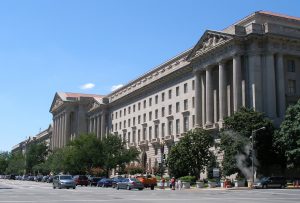Supreme Court Navigates Two Water Disputes, With More On The Way
On Monday the Supreme Court heard arguments in two interstate water allocation disputes, Florida v. Georgia and Texas v. New Mexico and Colorado. The Court has also accepted a third such case, Mississippi v. Tennessee, and assigned it to a special master. The cases will force the Court to examine the  balance between economic development and environmental protection, the federal role in state water disputes, and whether groundwater and surface water allocation should be governed by the same decisional rules.
balance between economic development and environmental protection, the federal role in state water disputes, and whether groundwater and surface water allocation should be governed by the same decisional rules.
The trio of pending cases belies the Court’s expressed preference for such disputes to be resolved by interstate compacts entered into pursuant to the Compact Clause (Article I, Section 10, Clause 3). It has previously commented that it approaches interstate water disputes with caution given the “complicated and delicate questions” involved, and has advised “expert administration [via a compact] rather than judicial imposition of a hard and fast rule.”[1] Nevertheless, in these cases at least, an old adage often attributed to Mark Twain trumped the Court’s advice: “whiskey is for drinking, and water is for fighting over.”


